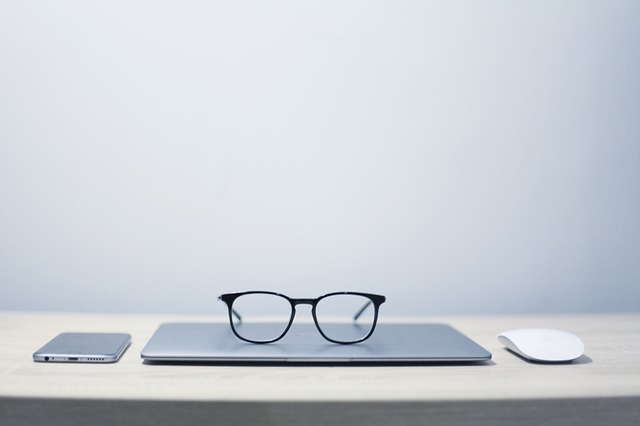Minimalism isn’t a white room with no furniture. Minimalism is the key to escape the machine–or slow it down at least.
Once, we were as free as the birds, and now we’re adults with bills, responsibilities and obligations–a turning cog in the engine. We work to buy things we need but lots of what we don’t. Buy a bigger home to fit our excess stuff and work even harder and longer to pay it off.
We buy a car that looks good at work in the parking lot. Then, work extra hours to pay for the hunk of metal we don’t get out to drive–to the home we don’t spend time in, with the family we don’t see. Not enough anyhow.
We’ve been sold a crooked dream. Consumerism is at an all-time high because of the barrage of constant marketing we cannot escape, the draw of fast fashion, cheap productions in cheap materials that do not last. Made to wear out, break quickly, or go out of fashion as quickly as it came in.
“Fashion’”: a term responsible for so much waste in the world. Without fashion nothing would go out of fashion. The latest trend, the latest phone, the latest car, the latest thing to seduce us out of our hard-earned cash. Days, weeks, months, even years in earning, seconds to spend.
Find Balance in Your Life
There’s got to be another way. Of course, we work to provide for ourselves and our loved ones, but there must be balance. We hear time after time from the kids and spouses of top-earners that what they really want, much more than all of the material things, is time with their loved ones.
We work hard to buy pretty objects, spend time cleaning and maintaining them, and experience decision fatigue trawling an excessive wardrobe or trying to figure out the best version of the next best thing.
Minimalism Looks Different For Everyone
Minimalism takes many forms; sometimes stark and sometimes colourfully cosy but that’s not what matters. What’s important is the minimalist ethos of requiring and acquiring less stuff.
Reducing our belongings gives us a new perspective on how we spend our money, and how we’ve wasted it. The latest gadget we just had to have but hardly used. Unworn clothing with the tags on. Wasted money, wasted hours worked to pay for it, wasted materials from the Earth to create it, going to waste in a landfill where it will remain and pollute for many years after us.
If we had not bought these items, what would life look like? Would our old phone have served us? Yes, and we’d have £XXX more in the bank. If we’d made do without the fashion trends that only lasted a season, would we still have been clothed? Yes, and why look the same as everybody else anyway? Timeless pieces are always chic.
But the knee-jerk reaction is resistance. “The things made me happy at the time” is the reflex response. Did they though? Or did the buzz wear off once the pristine plastic-wrapped box was cracked open, or the shop-fresh garment became creased inside an overstuffed closet.
Did the long hours at work make you happy? Could you have worked less hours if you hadn’t spent that money, and what would that have looked like? Chill time in the perfectly nice clothes you already owned, chatting to friends on a phone that worked just fine, from your home where you were relaxing with your family. Looks pretty sweet.
Learn to Live Again
We’ve forgotten that we work to LIVE. Forgotten what LIVING looks like. We’ve gotten it twisted, thinking because we work hard we should be rewarded with meaningless things… But the purchases push us into having to work even more, instead of living with meaning.
Pay the bills, fill the fridge, clothe the family with what’s needed and forget the ads telling us we need more.
What we do need more of is connection with family and friends. More time with ourselves. More freedom to follow our interests and dreams.
Minimalism Doesn’t Cost The Earth
Minimalism stretches beyond self-gain. What would Earth look like if we weren’t consuming new belongings at such an alarming and unsustainable rate? Would it look like it does now, with overflowing landfill sites worldwide, polluted rivers from the textile industry, and plastic shopping bags choking ocean life?
Our impact on the planet is something we should be mindful of, and minimalism is a mindset that we can all employ to reduce that. In becoming educated about recycling we’ve neglected what comes first in the 3Rs of waste: Reduce, Reuse. Recycling is the last resort. Much of what we believe is recycled, or resold after donation, still ends up in landfills.
Just Start From Where You Are
My path to minimalism has been long and continues still. Minimalism is a journey, not a destination.
Change is achievable. Look around and note the objects stopping you from spending time the way you want because they demand cleaning and maintenance, the unnecessaries that sucked up hard-earned cash. Think about the experiences that cash could have paid for instead.
Some people dwindle belongings in stages, sometimes selling things to claw back cash. Others have extreme packing parties, boxing up all their belongings and donating everything that proved unneeded after a few months. However you want to move forward, just start from where you are.
Suggested articles:
Goodbye Overwhelm, Hello Tidy Home
My favourite resources:
Play the Minimalists 30-Day Minimalism Game with a friend, or challenge yourself.
Try Courtney Carvers Project 333 to transform the way you think about your wardrobe.
Learn the Kon Marie Method of being thankful for how your belongings have served you so that you can let them go.

